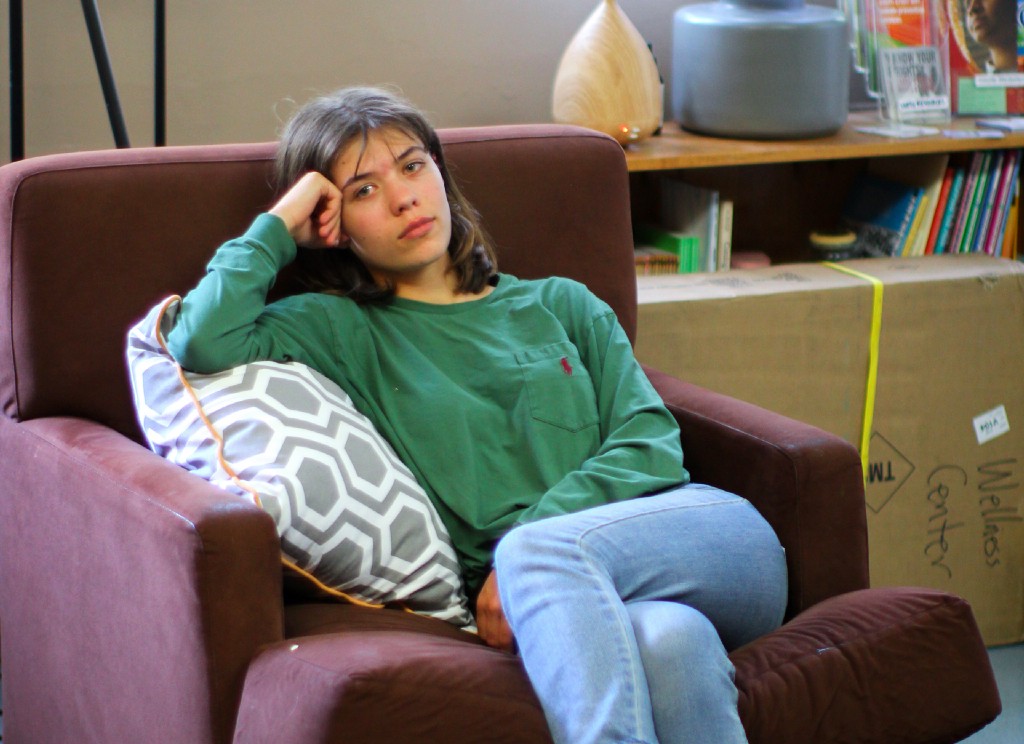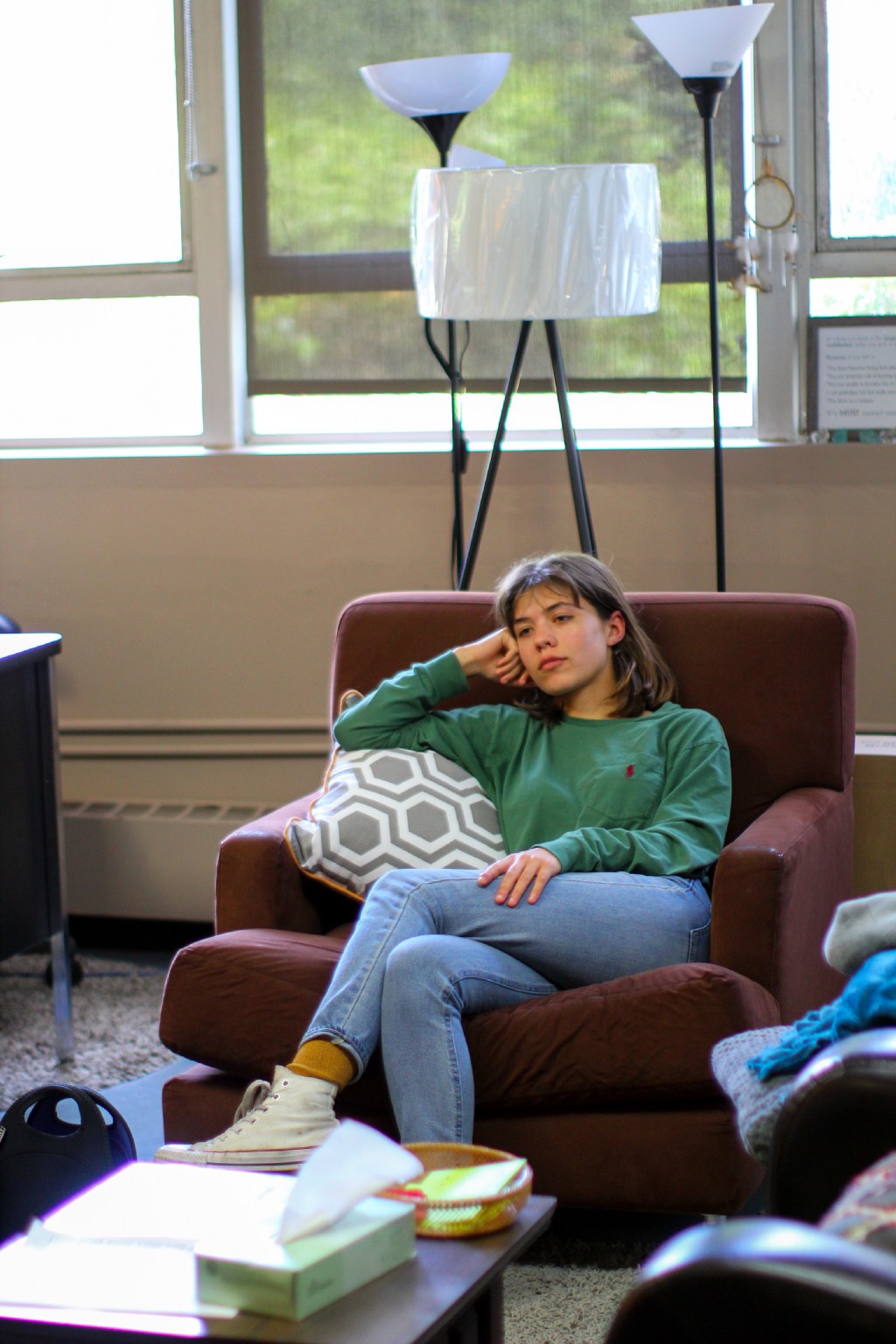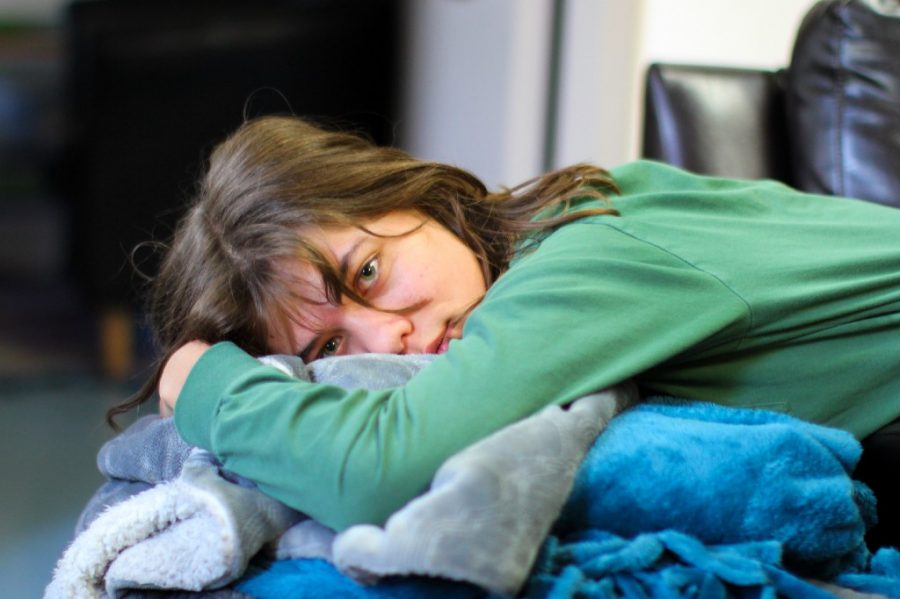Facing mental illness
May 18, 2018
M y fifth grade teacher gave out daily homework. When you completed your work, you got a stamp on your little weekly homework log, and if you had five stamps at the end of the week, you got some free-play time on Friday. If not, you sat at your desk finishing that week’s work. I spent most of my Friday afternoons sitting at my desk that year.
It wasn’t the first time I had daily homework, but it was the first time I hadn’t been able to complete it. Through a revolving door of elementary schools and new teachers, I had always done just fine getting my work in punctually, making friends, and being a happy, energetic kid. But in fifth grade, things started to feel harder. Not the work itself, but finding energy to sit down and do it.

Later that year I had an essay due on a book I hadn’t read. Instead of at least attempting the essay I stayed up the entire night, convinced that maybe my fear and the pain through my entire body would kill me before I had to turn anything in. After my mom dropped me off the next day, I walked past my classroom and sat in a bathroom stall, hyperventilating in my fleece pajamas, until my principal and mom came looking for me. By chance, she had called the school to make sure I was ok, only to find out I hadn’t made it to class. I told them I felt sick, and my mom took me home.
As time went on my troubles went from being just about schoolwork to being about every aspect of my life.
As time went on my troubles went from being just about schoolwork to being about every aspect of my life.
I started high school telling myself I’d stay on top of my classes and relationships. I thought if I told myself I would be fine enough times, I would be. Better, even. It would be a fresh start for me.
Inevitably, I started slipping behind again.
School was harder now, and I couldn’t get by doing almost no work. To understand the material, I actually had to study, and after years of being unable to sit down and work I felt like there was no way to catch up and begin now.

Meanwhile, I watched my classmates get by with ease. It seemed like they didn’t have to think about studying, it came naturally to them. My teachers would regularly make comments about how excellent Lowell students were, how on top of things we all are. That couldn’t have felt further from the truth. That year, a teacher of mine would call out who had missing homework assignments. Most kids never had their names called, but I would blush and slump lower in my seat as he called my name out again and again.
I was ashamed; I could not understand what was wrong with me.
I was sure my issues came from me being lazy, stupid, and unmotivated. I was surrounded by 2700 kids who did it everyday, why couldn’t I?
I was ashamed; I could not understand what was wrong with me.
My peers would be upset over low As and Bs, while I barely scraped by with Cs, Ds, and Fs. The worst part was that I wanted to try. I wanted to be successful, to get home, sit down, and do all of my homework. I would lay in bed trying to convince myself to get up and do work. Some days I would lay unmoving until I fell asleep still in my clothes, without eating or brushing my teeth.
It got to the point where I stopped setting an alarm, knowing I would sleep through my first three classes of the day regardless.
It didn’t occur to me that my lack of motivation, isolation, anger, anxiety, sadness, and apathy could be because of mental illness.
Time passed and I still felt outside of it all. Despite my year of experience as a Lowell student I still felt isolated from my school community. It didn’t occur to me that my lack of motivation, isolation, anger, anxiety, sadness, and apathy could be because of mental illness.
What I had learned about mental illness from TV was that mentally ill people were murderers, or just really sad all of the time. What I saw and what I felt just weren’t the same. I thought there was no way that I could be mentally ill.
As it turns out, I was, and still am. Early in my junior year after another round of telling myself I could do it and feeling I had failed, a wellness counselor recommended I see a psychiatrist. As difficult as the conversations I was forced to have were, they were some of the most impactful and productive of my life. I was diagnosed with depression and social anxiety disorder.
In the fall of my junior year, after years of struggle and a particularly challenging first few weeks of school where the thought of going made my breathing tight and my stomach hurt, I finally had an understanding of myself. There’s nothing “wrong” with me. I’m not lazy, or a bad person. I have issues, but they’re manageable.

Most of my teachers have been more than understanding, letting me go to the Wellness Center when I needed to and giving me extensions on homework and essays, but not everyone has been so accommodating. Despite diagnoses from psychiatrists, sessions with therapists, and emails from my academic counselors, some teachers have treated my issues as fake or exaggerated. Once, I came into class having a panic attack, and tried to explain to my teacher what was going on. I asked to go to the wellness center, maybe take some time outside of class, get a sip of water — use the resources and coping abilities I had been told would be available for me. Instead of letting me out, he told me that we were covering three chapters in class that day, and my attendance was crucial for success on our upcoming test.
Later, my counselor sent a note to my teacher explaining my truancy, how I have trouble finishing work and organizing. My teacher walked over to my table, looked down at my lunch and said, “Huh. That looks pretty organized to me.”
The only person who can easily observe my illness is me.
It’s hard to explain mental illness to people when they can’t see it in front of them. It’s not a broken limb, or a scraped knee. The only person who can easily observe my illness is me.
That doesn’t mean it isn’t real. Mental illnesses often stem from chemical imbalances in the brain on top of environmental factors, and can be influenced by genetics.
Every single therapist I have ever talked to has told me the same thing: You are not alone.
Lowell didn’t cause my anxiety and depression, and neither did my peers here.
Looking back, I realize that my depression isn’t anyone’s fault. Not my classmates, my teachers, my counselors, or my family’s. But the lack of open conversation about mental illness here at Lowell is a huge problem for students like me who are struggling. Feeling like the only failure among 2000 future world leaders when you can’t help but hate yourself is exhausting.
The reality is I’m not the only one who’s struggling, and I’m not the only one who stayed quiet. Stigma around mental illness has kept me and others silent for too long. Lowell didn’t cause my anxiety and depression, and neither did my peers here. But, I could have gotten help sooner if we had had open, honest conversation about mental health from the start.


